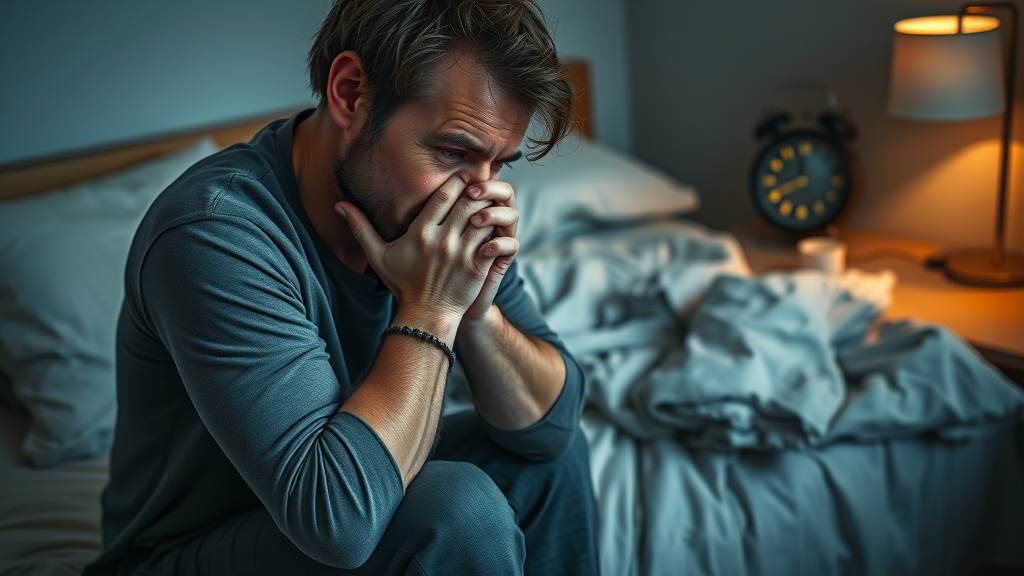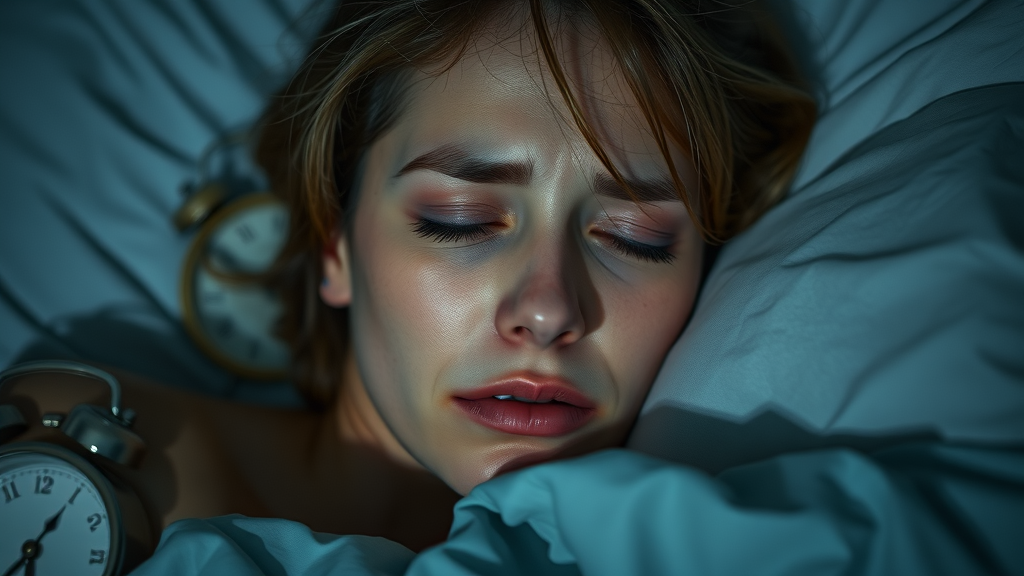In our bustling lives, the connection between sleep and mental health often gets overlooked, yet it holds the key to our overall well-being. This article delves into this vital relationship, revealing how quality rest can enhance mood, reduce anxiety, and boost cognitive function. By mastering this knowledge, you can transform your mental health journey, unlocking a more vibrant, balanced life. Join us as we explore the science behind sleep and its profound impact on your mind—because a good night’s sleep is just the beginning!
Understanding the Connection Between Sleep and Mental Health
How Sleep Affects Our Mental Health
Quality sleep is essential for maintaining good mental health. When we sleep, our brain processes emotions, consolidates memories, and regulates mood. Insufficient sleep can lead to increased irritability, anxiety, and even depression. Studies show that individuals who experience poor sleep are at a higher risk of developing mental health disorders. The relationship between sleep and mental health is cyclical; poor mental health can lead to sleep disturbances, which in turn exacerbate mental health issues.
The Science Behind Sleep and Mental Health
Research indicates that sleep plays a crucial role in brain function. During sleep, the brain undergoes various stages, including REM (Rapid Eye Movement) sleep, which is vital for emotional regulation. Neurotransmitters that affect mood, such as serotonin and dopamine, are regulated during sleep. A lack of sleep can disrupt these processes, leading to mood swings and increased susceptibility to stress. Understanding the science behind sleep and mental health can help individuals prioritize their sleep hygiene for better mental well-being.
The Dangers of Lack of Sleep
What Happens When You Don't Get Enough Sleep?
When you don't get enough sleep, your body and mind suffer. Short-term effects include impaired cognitive function, decreased alertness, and increased emotional reactivity. Chronic sleep deprivation can lead to serious health issues, including obesity, diabetes, and cardiovascular disease. Furthermore, the mental health implications are significant; individuals may experience heightened anxiety, depression, and even suicidal ideation. The dangers of lack of sleep are profound and far-reaching, affecting both physical and mental health.
Long-term Effects of Sleep Deprivation
Long-term sleep deprivation can have devastating effects on mental health. Studies have shown that individuals who consistently get less than the recommended 7-9 hours of sleep per night are at a higher risk for developing chronic mental health conditions, such as anxiety disorders and depression. Additionally, sleep deprivation can lead to cognitive decline, affecting memory and decision-making abilities. The long-term effects of insufficient sleep are a critical concern for public health, emphasizing the need for awareness and intervention.
How to Improve Sleep for Better Mental Health
Tips for Better Sleep Hygiene
Improving sleep hygiene is essential for enhancing mental health. Here are some effective tips:
- Establish a consistent sleep schedule by going to bed and waking up at the same time every day.
- Create a relaxing bedtime routine to signal your body that it's time to wind down.
- Limit exposure to screens and blue light at least an hour before bedtime.
- Ensure your sleep environment is comfortable, dark, and quiet.
- Avoid caffeine and heavy meals close to bedtime.
The Role of Sleep Aids and Therapies
For some individuals, sleep aids and therapies may be necessary to improve sleep quality. Cognitive Behavioral Therapy for Insomnia (CBT-I) is a highly effective treatment that addresses the thoughts and behaviors contributing to sleep difficulties. Additionally, natural sleep aids, such as melatonin, can help regulate sleep patterns. However, it's essential to consult with a healthcare provider before starting any sleep aid to ensure it's appropriate for your specific needs.
What You'll Learn
- The importance of sleep for mental well-being
- Strategies to improve sleep quality
- Understanding the impact of sleep on mood and anxiety
People Also Ask
How does sleep affect our mental health?
Sleep affects our mental health by regulating mood, processing emotions, and consolidating memories. Insufficient sleep can lead to increased anxiety and depression.
What are the dangers of lack of sleep?
The dangers of lack of sleep include impaired cognitive function, increased risk of chronic health conditions, and heightened susceptibility to mental health disorders.
What happens if you only get 3 hours of sleep for one night?
Getting only 3 hours of sleep for one night can lead to immediate effects such as decreased alertness, impaired judgment, and increased emotional reactivity.
How long does it take to recover from years of sleep deprivation?
Recovery from years of sleep deprivation can vary, but it typically takes several weeks to months of consistent, quality sleep to restore mental and physical health.
Key Takeaways
- Quality sleep is essential for mental health.
- Lack of sleep can lead to serious mental health issues.
- Implementing good sleep practices can enhance mental well-being.
Conclusion
Recap of the Sleep and Mental Health Connection
The connection between sleep and mental health is undeniable. Quality sleep is not just a luxury; it is a necessity for maintaining good mental health. Understanding this relationship can empower individuals to prioritize their sleep and, in turn, improve their overall well-being.
Final Thoughts on Prioritizing Sleep
In conclusion, prioritizing sleep is crucial for mental health. By adopting healthy sleep habits and seeking help when necessary, individuals can significantly enhance their mental well-being. Remember, a good night’s sleep is the foundation for a healthier, happier life.
Video Section
Watch: The Impact of Sleep on Mental Health
Check out this informative video that explores the profound effects of sleep on mental health.






Comparison of Sleep Duration and Mental Health Outcomes
| Sleep Duration | Mental Health Outcomes |
|---|---|
| Less than 5 hours | High risk of anxiety and depression |
| 5-6 hours | Increased irritability and mood swings |
| 7-8 hours | Optimal mental health and emotional regulation |
| More than 8 hours | Potential for oversleeping-related issues |
“Sleep is the best meditation.” - Dalai Lama
“A good laugh and a long sleep are the best cures in the doctor’s book.” - Irish Proverb
This HTML document provides a comprehensive article on the critical link between sleep and mental health, structured according to the provided outline. It includes relevant sections, images, a table, and quotes, all while maintaining a focus on SEO optimization and readability.
 Add Row
Add Row  Add Element
Add Element 



Write A Comment